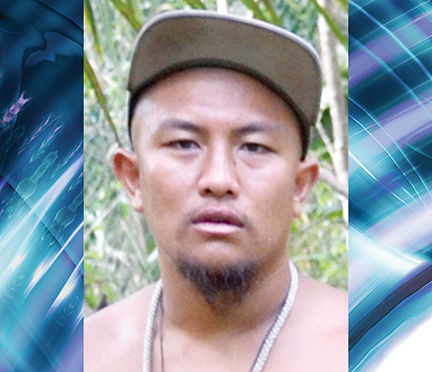WAILUA — State officials say a group occupying land on a historic hotel site is trespassing. Deborah Ward, spokeswoman for the Department of Land and Natural Resources, said a group of 25 individuals residing at Coco Palms are on private
WAILUA — State officials say a group occupying land on a historic hotel site is trespassing.
Deborah Ward, spokeswoman for the Department of Land and Natural Resources, said a group of 25 individuals residing at Coco Palms are on private property owned by, and state land leased to, Coco Palms Hui LLC.
“Coco Palms is the responsible party to take any action,” she wrote in an email. “Title disputes involving private property are best addressed in the courts.”
Noa Mau-Espirito said the only entities that hold jurisdiction over the land dispute are the Hawaiian Kingdom Court and the International Criminal Court.
“(Coco Palms is) going to find out that they can’t bring me to court,” Mau-Espirito said. “The (state) judges and the courts can’t retain jurisdiction over these matters at all.”
The group of about 25 formerly homeless individuals may have claim to religious rights if they can prove a genealogical connection to the original landowners.
Victoria Creed, president of Waihona ‘Aina Corporation, an information website for Hawaiian history and land use, said descendants of heirs to land endowed by Hawaiian royalty have the right to burial council hearings and consultation.
“In 1848, King Kamehameha III gave land to all his chief and people. Some of them got awards; some of them did not get awards,” she said. “Descendants would have to visit the tax office for that TMK tax map and see how it changed hands throughout the years,” she said.
Noa Mau-Espirito said his lineage spans seven generations from the last king of Kauai.
“My genealogy is registered and filed,” he said. “From my dad’s mom, it goes straight to King Kaumualii.”
Mau-Espirito occupied Coco Palms last spring, claiming he owns 12 acres because of a royal land patent originally issued to Josia Kaumualii.
His cousin, Kamuela Kapule O Kamehameha, said he is a descendant of Kauai’s last queen, Deborah Kapule.
“We have all the land titles,” Kapule O Kamehameha said. “We have everything to prove and verify that we’re the landowners. We have the Palapala Sila Nui, which is the land title.”
Kapule O Kamehameha said thousands of his ancestors are buried on the property.
David Shideler was on the Archaeological Inventory Survey commissioned to research and uncover any evidence of remains at the Coco Palms site in 2005 and 2006, according to a previous report.
In 2005, his team found two small bone fragments. In 1973, 34 burials were relocated during renovation of the site.
If Coco Palms and the previous owners paid the taxes for the property, they would be claimed the owners, Creed said.
“You still have people who — if they can prove through OHA their genealogical connections — they still have rights to being consulted and have rights to any burial information,” she added.
According to county records, Coco Palms Hui LLC pays land taxes on 12.63 acres which Mau-Espirito and his group occupy.
“The county recognizes us as the owners,” wrote Tyler Greene, co-owner of Coco Palms Hui.
Greene and his partner, Chad Waters, have been trying to restore the Coco Palms since 2012. The resort closed in 1992 after Hurricane Iniki.
The $3.5 million selective demolition process began in June. Demolition included tearing out the drywall, making mechanical and electrical repairs, clearing out the Lotus Restaurant and elevating the bungalow buildings so they adhere to Federal Emergency Management standards.
By spring, crews are expected to start Phase II, renovation and reconstruction, of Coco Palms.
The property will boast 350 rooms, 12,000 square feet of retail space, three restaurants, leisure areas and a four-acre cultural center.
During public hearings on the Coco Palms restoration project, and decades prior as it sat shuttered, no one claimed land ownership.
Mau-Espirito believes his past relatives didn’t stake claim to the land because some were “scared to go against the grain.”
“I think they were afraid to be outcast or labeled as a crazy Hawaiian activist,” he said. “This life in Wailua is for me and my family — even my people.”


